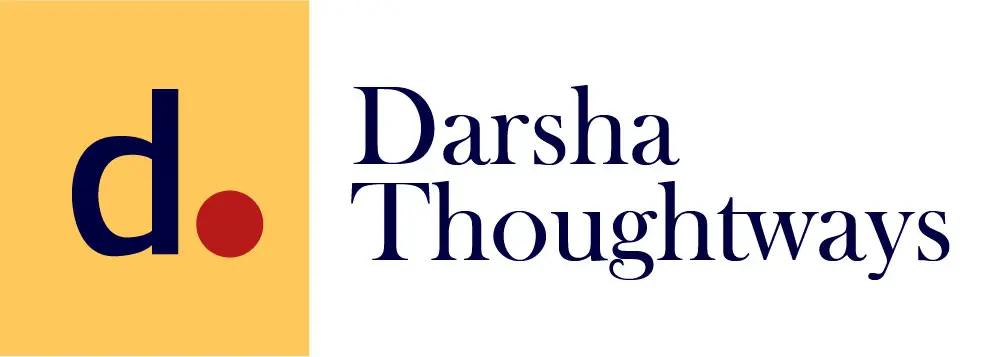Have you ever noticed how everyone seems to have an answer for everything? It’s like the moment you start talking about something that’s on your mind, people line up with their advice arsenal. “Do this,” “Don’t do that,” “Here’s what I would do” – it’s a never-ending stream.
I find myself thinking, why does it always have to be about giving advice? Why not start with something simpler, something more human? Questions like “What do you really want to do about this?” or “How does this whole thing make you feel?” seem to get lost in the rush to provide solutions.
It’s a curious human trait, this urge to show we know, to prove that we have the answers. Even when we discuss things hypothetically, agreeing that collaboration is key, the next moment we’re back to pushing our own ideas, subtly (or not so subtly) implying that we know better.
And here’s the part that really gets me: if you’re the one doing more listening than talking, people often assume you don’t know much. It’s as if by choosing to listen, you’ve put up a sign saying, “Please enlighten me because I clearly don’t get it.” Isn’t that strange? In a world that desperately needs good listeners, we end up undervaluing them, thinking they have less to offer.
It makes me wonder – why are we like this? What’s behind this incessant need to be the one with the solutions? Why do we undervalue the power of simply understanding where the other person is coming from?
As I dive into these questions, I invite you to join me in rethinking our approach to conversations – not just in our professional lives, but in all the ways we connect with others.
From Observation to Understanding
So, we’ve recognized this tendency in our conversations – the leap to give advice, to show we know. It’s almost reflexive, isn’t it? But let’s pause and dig a little deeper. Why do we do this? What’s driving this instinct to jump straight to solutions? Understanding these underlying reasons can be eye-opening. It’s like turning on a light in a room we’ve only ever seen in the dim half-light. Let’s explore these reasons, keeping our conversation personal and relatable, just like two friends trying to unravel a mystery together.
Why People Tend to Offer Solutions Over Seeking Understanding
Demonstrating Expertise and Assertiveness
In many social and professional settings, there’s a strong inclination to display expertise and assertiveness. Offering advice or solutions is often seen as a way to affirm one’s knowledge and capabilities. It’s like saying, “I know this, I’ve been there,” which can be especially prevalent in leadership or consultancy roles. This behavior is often rewarded, reinforcing the idea that being solution-oriented is synonymous with being competent and knowledgeable.
Natural Problem-Solving Instinct
Humans are wired to solve problems. When faced with a situation, our brains naturally gravitate towards finding solutions. This instinct, while valuable in many contexts, can sometimes overshadow the need for deeper understanding and empathy. It’s like we’re programmed to jump straight to the ‘fix it’ mode, without fully grasping the nuances of the issue at hand.
Cultural and Social Conditioning
The cultural backdrop we operate in significantly influences our communication styles. In many cultures, assertiveness and directness are valued traits, often interpreted as signs of confidence and authority. This can discourage more reflective, inquisitive forms of dialogue. From a young age, we’re taught to be decisive and clear, which might inadvertently lead to a preference for giving advice over asking probing questions.
Discomfort with Vulnerability
Asking open-ended, empathetic questions requires a level of vulnerability that not everyone is comfortable with. It opens up a space for deeper, sometimes more emotionally charged conversations. Not everyone is equipped to navigate these waters, either due to personal discomfort or lack of skills in managing such dialogues.
The Collision of Collaboration and Competition
Despite the widespread endorsement of collaborative ideals, the reality of workplace dynamics often leans more towards competition. In such environments, the impulse to assert one’s ideas and solutions can overshadow collaborative approaches. This can lead to a situation where, even though people verbally support the concept of working together, their actions reflect a preference for promoting their own viewpoints.
Undervaluing the Skill of Listening
Active, empathetic listening is a skill that doesn’t get the recognition it deserves. In our fast-paced, result-driven world, those who excel in listening rather than speaking are often perceived as less proactive or knowledgeable. This is a profound misunderstanding, as effective listening is crucial for truly understanding issues and fostering meaningful connections.
Confirmation Bias and Ego
Sometimes, the rush to provide solutions is driven by a need to confirm one’s own beliefs or to bolster one’s ego. It’s a way of affirming one’s standing in a conversation, a kind of subconscious attempt to validate one’s perspectives and experiences.
The Unseen Gap: Intentions vs. Impact
You know, it’s intriguing how we often don’t pause to think about the impact of our ‘helpful’ advice. It’s like we’re on autopilot, convinced that offering solutions is the best way to contribute. But here’s the catch – are we really helping, or are we just satisfying our own need to feel useful and knowledgeable?
Do we suffer from the Illusion of Contribution? We’ve all been there, feeling a sense of accomplishment after doling out advice, patting ourselves on the back for our wisdom. It’s comforting, isn’t it? To think we’ve made a significant contribution. But this comfort might be a bit of a mirage. It’s easy to mistake our eagerness to solve problems for effective help, but the reality could be quite different.
The tricky part is that recognizing the gap between our intentions and the real impact requires introspection – and let’s be honest, that can be uncomfortable. It means acknowledging that sometimes our advice might not be as helpful as we think. Maybe we’re not listening as closely as we should, or perhaps we’re projecting our own experiences and biases onto others’ situations creating Blind Spots in Our Perception.
There’s a saying, “ignorance is bliss,” and sometimes it seems to fit perfectly here. If we don’t see the consequences, if we don’t realize that our advice might be missing the mark, then we can happily go on believing we’re doing great. But is that really the kind of bliss we want? The kind that comes from not fully engaging with others, from not truly understanding their needs?
A Personal Fear: The Inevitable Path of Conversations
Each conversation I enter carries a shadow of dread, a fear not just rooted in the predictable patterns of dialogue, but also in the consequences these patterns breed. I’ve seen, time and again, how our rush to solutions creates ripples that go beyond the immediate exchange.
At Work: The Cost of Surface-Level Engagement
In professional settings, this eagerness to solve rather than understand leads to more than just missed opportunities for deeper connection. It stifles innovation and genuine collaboration. Every time we opt for a quick fix instead of delving into the real issues, we lose a chance to foster an environment where diverse thoughts and creativity flourish.
In Personal Relationships: Eroding the Bonds
This pattern extends to personal relationships as well. When friends and family become mere sounding boards for our advice, we miss the essence of human connection. The depth of our relationships erodes when we prioritize our solutions over understanding the emotions and experiences of those we care about.
Societal Impact: The Loss of Empathy and Understanding
And on a broader scale, this habit of jumping to solutions contributes to a societal atmosphere where empathy and deep understanding are overshadowed by the efficiency of quick fixes. We risk creating a culture where listening is undervalued, where the art of conversation is lost to the mechanics of problem-solving.
The Moment of Reaction: A Reflection of Frustration
My reactions in these moments are more than just personal frustration; they are a reflection of the broader consequences we all face. The dread I feel is not just about the predictability of conversations but also about the world we might create if we continue down this path – a world where superficial exchanges are the norm, and the richness of true understanding becomes a rarity.
This is why my call to action is so urgent, so personal. It’s a plea to break the cycle, to shift our focus from offering solutions to seeking understanding. The risk of inaction is not just a series of unfulfilling conversations but a future where the very fabric of our connections – personal, professional, and societal – is worn thin by the constant overlooking of empathy and deep understanding.

